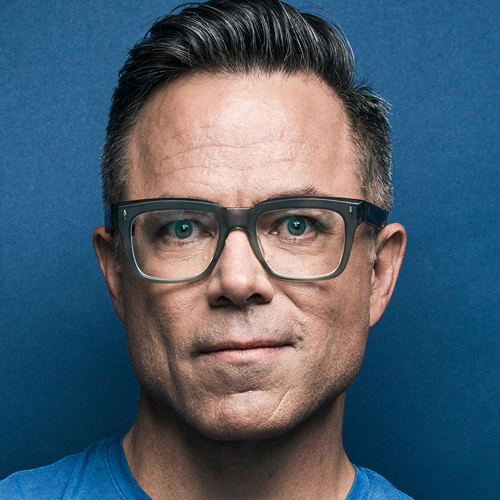
Over the past year, “truth” has taken a serious beating — and so have “facts,” “evidence” and “science.” We seem to be swimming in a sea of relativity where everything is true and nothing is, well, really true.
Asserting that there is a scientific consensus on an issue seems to have little persuasive force. In fact, saying you believe the science on a particular topic has increasingly become a way for others to characterize your biases, conflicts, evil intentions and/or lack of open-mindedness. (Yes, I am speaking from personal experience.)
For example, if you are persuaded by the existing body of evidence that suggests that most supplements are either totally useless or of minimal value you are, obviously, in the pocket of Big Pharma (even though Big Pharma is, paradoxically, heavily invested in the supplement industry). Somehow, proposing that taking mega doses of vitamins is not a good idea means you only care about pharmaceutical fixes to health problems.
If you believe the studies that have found that organic food is not nutritionally superior to conventionally grown crops, you have been duped by the agricultural industry (but not, apparently, by the multi-billion dollar organic food industry), don’t care about the environment and are likely pro-toxins. By the way, you will attract the exact same label if you also believe the scientific consensus, such as the recent work done by the National Academy of Sciences, that suggests GMOs are safe to eat.
If you think that the existing evidence questions the value of some alternative treatment — say acupuncture or chiropractic — you apparently don’t care about “the root causes” of disease (whatever that means). You are also completely oblivious to all the problems and limits of conventional medicine, which is, so the story goes, only concerned with symptoms and not the avoidance of disease (this will be news to the many scientists, physicians, nurses, health policy experts and other science-informed researchers who have devoted their lives to health promotion and the prevention of chronic and infectious diseases). Indeed, by not embracing science-free approaches to health, you are telling the world you have no appreciation for the value of prevention and that your winter jacket is made out of puppy fur.
The dismissal of science in the service of personal agendas is frustrating – especially when it is accompanied by bizarre leaps in logic (why does using science to question the value of vitamins or alternative approaches to health make a person pro-pharmaceutical or anti-prevention?). However, we also need to recognize that these positions are given strength and legitimized by the way science is done and represented in the public sphere.
Yes, there is a complex array of social and cultural forces that shape public opinions around health, including the growth of online confirmation bubbles, agenda-driven media filters, and the desire to project an ideologically consistent personal brand.
But whether the issue is GMO safety, homeopathy, organic food, gluten-free, vaccination, integrative health, detoxing, supplements or acupuncture, the word I hear the most is trust. From my perspective, this is, by far, the most frequently used justification by those seeking to undermine scientific consensus. We can’t trust the science, it is alleged, because industry funding, political meddling and/or the ambitions of the science community have corrupted it. And there are numerous high profile examples that can be held up to support this view, such as the way in which the sugar industry influenced research on their product.
Of course, the we-can’t-trust-science justification is not always wielded in a consistent or logical manner. Often, for example, people only distrust the research that does not support their already formed perspective. The research on mindfulness (which, in fact, has also been found to be biased), published in a mindfulness journal by the mindfulness practitioner will be accepted as solid, but the work by National Academy of Sciences on GMOs will be viewed as suspect.
Still, we should take this trust issue seriously. Good, independent, well-done, reproducible research that is produced in a transparent and collaborative manner is the biggest enemy of pseudoscience. Bad science, tainted by clear conflicts, will only fuel the doubters and fan the anti-truth flames.
False balance is another way in which scientific consensus is undermined. It is a rhetorical phenomenon that is far too common in the popular press, particularly in the context of health. Often, health stories make it sound like the scientific community is split on a topic or that a patently absurd idea has a degree of credibility. (Classic irrational idea that does not deserve a critique-free pass by the media: vaccines cause autism.) Some studies have suggested that the media, and science communicators more broadly, should seek to provide the weight of evidence — that is, clearly explain what most of the scientific literature says on a topic. If done well, this can have a positive impact on public understanding of scientific issues, such as reducing information uncertainty.
In 2017, let’s take back science. Let’s support efforts to promote and fund good, independent science. Let’s make sure governments know that trustworthy science is needed now, more than ever. Let’s foster creative communication strategies that help to disseminate accurate, engaging and appropriately balanced representations of science. And let’s speak out against the conspiracy-tinged nonsense that increasingly pervades our health debates. Go science!
Photo: Komsan Loonprom/Shutterstock.com
Do you have something to say about the article you just read? Be part of the Policy Options discussion, and send in your own submission. Here is a link on how to do it. | Souhaitez-vous réagir à cet article ? Joignez-vous aux débats d’Options politiques et soumettez-nous votre texte en suivant ces directives.








